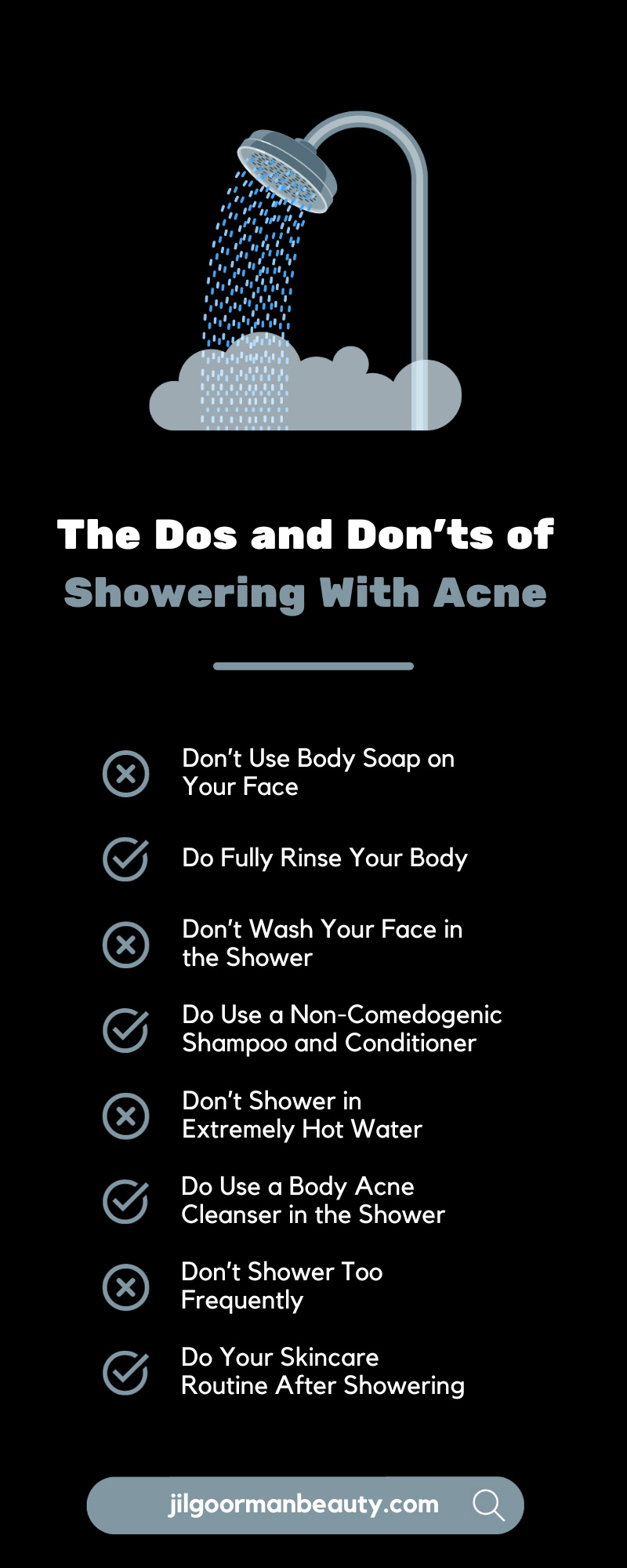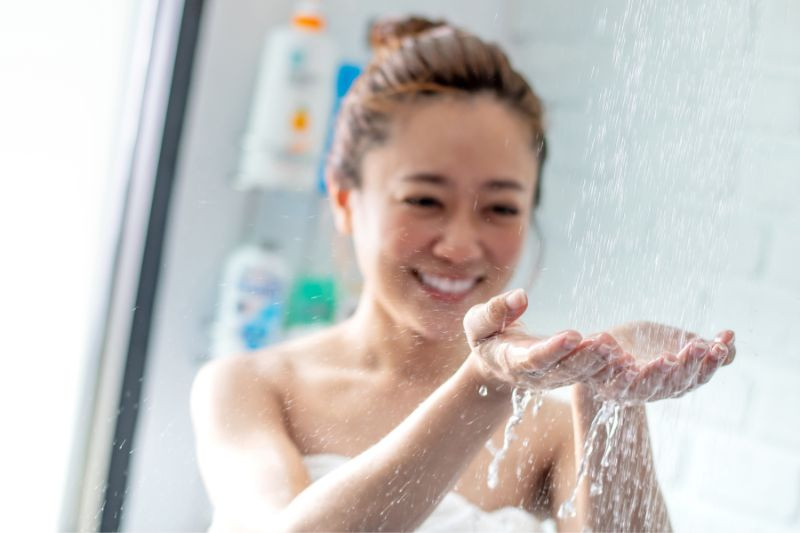Do you feel like acne is the bane of your existence? It’s uncomfortable, makes it difficult to apply makeup, and causes insecurities. All you want is clear and radiant skin that makes you feel confident and beautiful.
One of the reasons why your acne isn’t getting better is because you’re making several mistakes while showering. If you want to improve your routine, learn the dos and don’ts for showering with acne.
Don’t Use Body Soap on Your Face
Body soaps are more aggressive in their cleansing action because the skin on the body is thicker and less sensitive than the skin on the face. Body soaps contain stronger antibacterial agents to cleanse sweat, dirt, and oils from the skin.
If you use body soap on your face, the ingredients could strip away the natural moisturizing oils your face needs to prevent dryness and irritation. Dry skin can worsen acne or trigger breakouts, as the skin overcompensates by producing more oil.
Do Fully Rinse Your Body
You might wonder, “How could I not fully rinse my body in the shower?” It’s possible to step out of the shower and notice suds on your skin. Leftover shower products may irritate the skin and block pores, which could cause acne.
Remember that acne doesn’t form exclusively on the face. It can arise on your back, chest, neck, and arms. While using your favorite hair products and body soap, be sure there isn’t a trace of soap left behind when you turn off the showerhead.
Don’t Wash Your Face in the Shower
One common mistake many people make when managing acne is washing their face in the shower. The high water temperature can harm the skin by stripping away natural oils, dehydrating the skin, triggering excess oil production, clogging pores, and causing breakouts.
Showering also involves intense water pressure that can be too harsh for the face. This is particularly problematic for acne-prone skin because it needs support to heal rather than experience another irritant.
Although it’s convenient to cleanse the face in the shower, you should avoid it at all costs. After stepping out of the shower, go to the sink for a gentle, thorough facial cleansing.
Do Use a Non-Comedogenic Shampoo and Conditioner
Comedogenic products contain ingredients that block pores, leading to the formation of comedones—skin-colored bumps on the skin. Non-comedogenic shampoos and conditioners are devoid of these pore-clogging ingredients and are lighter and less oily.
These products won't leave any residue that could potentially block your pores as the products sit on your skin. This makes them safer for people combating acne.
Jil Goorman Beauty understands that it’s difficult to balance all your beauty products to get the results you desire. Acne-safe shampoo and conditioner is the answer you’ve been searching for! The non-comedogenic formula is paraben-free and specially designed to avoid breakouts on the hairline.
Don’t Shower in Extremely Hot Water
Hot water can feel soothing after a long day, but it could be worsening your acne symptoms. Showering with lukewarm water will produce the best results because it prevents redness and avoids stripping the skin of its natural oils.
Do Use a Body Acne Cleanser in the Shower
While you shouldn’t use a facial cleanser in the shower, it is beneficial to use a body acne cleanser. Many people suffer breakouts on their arms, chest, and back. A body acne cleanser can be a lifesaver for removing excess oils and bacteria while supplying the skin with acne-fighting ingredients like salicylic acid and benzoyl peroxide.
Body acne cleansers are specially formulated to penetrate the thick skin on the body to treat body acne. Their acne-fighting ingredients cleanse the pores, reduce inflammation, and manage oil production.
Salicylic acid penetrates the pores and dissolves dead skin cell buildup, which is responsible for acne. Benzoyl peroxide, on the other hand, kills acne-causing bacteria beneath the surface of the skin.
It's important to use these products correctly for maximum benefit. While in the shower, apply the body acne cleanser gently using your hands or a soft washcloth. Avoid scrubbing, as this can irritate the skin and worsen acne. Leave the product on your skin for a few minutes to allow the active ingredients to work before rinsing.
Don’t Shower Too Frequently
You might like to shower twice or once a day. While you'll feel fresh and clean, you could be removing the healthy oil and bacteria from your skin. Also, your face and body could feel dry and itchy without moisturizing. Then, it may become vulnerable to bacteria that are likely to trigger breakouts all over the body.
While over-cleaning the body isn’t a dire issue, it could be the cause of your worsening acne, especially if you’re showering with extremely hot water. It’s best to shower once every day, every two days, or every three days to maintain your skin’s natural hydration.
Do Your Skincare Routine After Showering
The moment you step out of the shower, it’s time to cleanse your face and begin your skincare routine. Start with a gentle acne cleanser, then pat the skin dry with a clean towel. Apply a toner with salicylic acid or benzoyl peroxide to restore the skin’s pH balance and act as a secondary acne cleanse.
If you want to add an acne-fighting product, try retinol at night. This product may take up to three months to show results, but it will be well worth the wait for reducing clogged pores and inflamed acne spots.
Next, it’s time to lock in moisture and hydrate the skin. Hyaluronic acid and niacinamide are the two most popular hydrating facial serums. After your skin has absorbed those products, finish up with an oil-free moisturizer.
Finally, moisturize the rest of your body. While this isn’t an acne-preventing technique, it nourishes your skin and keeps it soft.
Final Thoughts
Remember these dos and don’ts of showering with acne, and be kind to yourself. Reducing redness, cleansing pores, and achieving a radiant complexion take time. As long as you’re diligent with your showering and skincare routine, you’re on the right path to clear and healthy skin.


